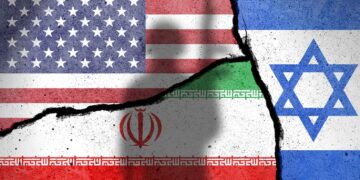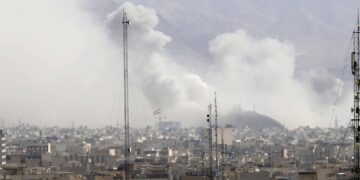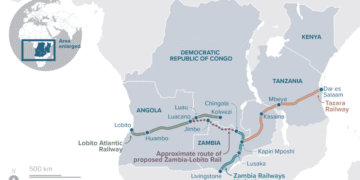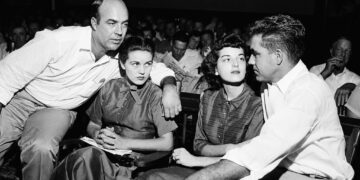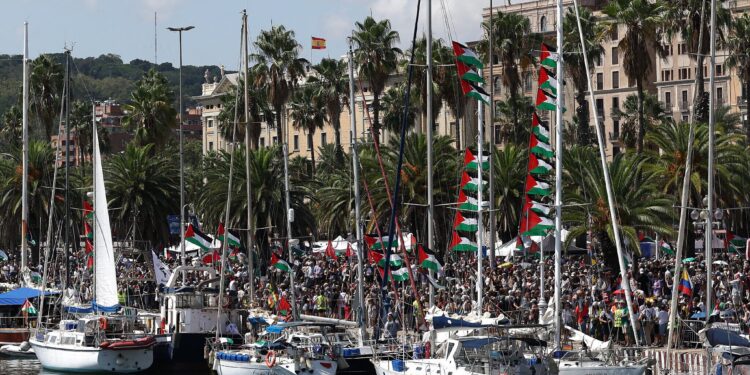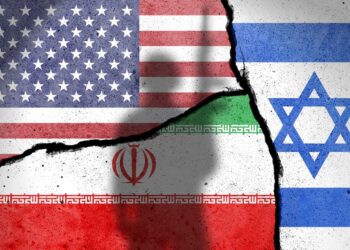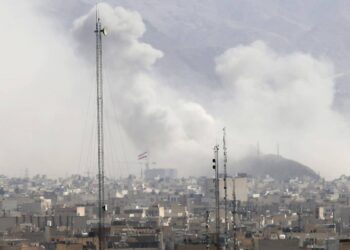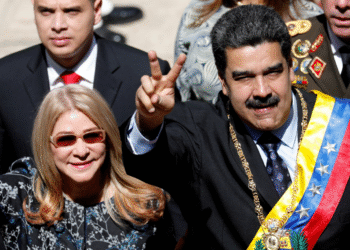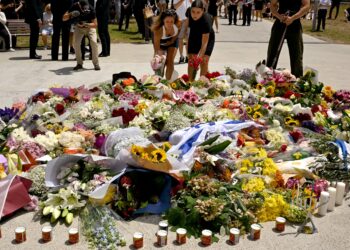Mediterranean Sea – On the top deck of a Global Sumud Flotilla vessel bound for Gaza, volunteers gathered for a security drill. The ship, loaded with humanitarian aid, was en route to break the Israeli blockade and deliver supplies directly to Palestinians in the besieged enclave.
Life vests were checked, head counts conducted, and muster points assigned. The training covered familiar maritime emergencies such as fire, collision, or a person falling overboard. But for this flotilla, there was an additional and far more political risk: interception by Israeli forces.
Volunteers were instructed on how to respond if soldiers boarded the vessel. The protocol was clear—hands raised, no resistance, and strictly nonviolent behavior in keeping with the mission’s principles.
The flotilla had just entered the so-called “yellow zone” between Italy and Cyprus, international waters where organizers say Israeli attacks are possible. The drills, therefore, took on heightened urgency.
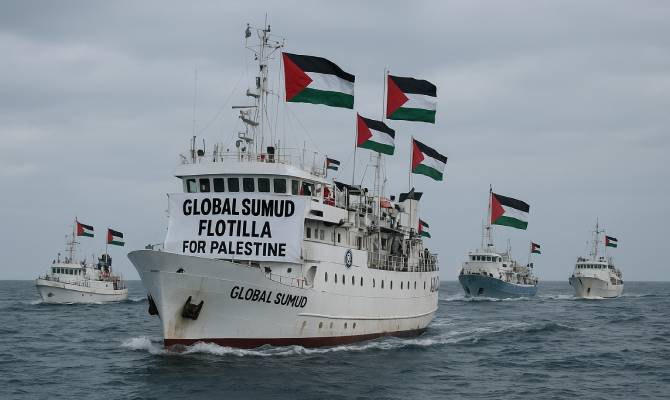
‘Old Propaganda Strategy’
Ahead of the voyage, Israel’s Foreign Ministry labeled the humanitarian flotilla a “jihadi flotilla” and alleged ties to Hamas. Steering committee member Saif Abukeshek dismissed the claims in an online press briefing, calling them “psychological warfare” and “an old propaganda strategy.”
On deck, the discussion turned to a difficult question: how to act if Israeli soldiers used violence. A coordinator addressed the group with a bullhorn.
“We have to decide collectively whether we will react, or whether someone should intervene if soldiers begin to beat one of us,” the coordinator said.
There was silence before he continued: “If I am dragged or beaten, I don’t want any of you to react or tell the soldiers to stop. Please respect my decision.”
The bullhorn was passed around. One after another, volunteers echoed the words. By the third person, the message had been shortened to just two words: “the same.” Soon, the entire group repeated it in unison.
The reasoning was simple: any reaction, even verbal protest, could provoke harsher violence and put others at risk.
As one volunteer explained: “If you react or speak up while being beaten, you not only endanger yourself but also everyone else—and you break the will of the group.”


